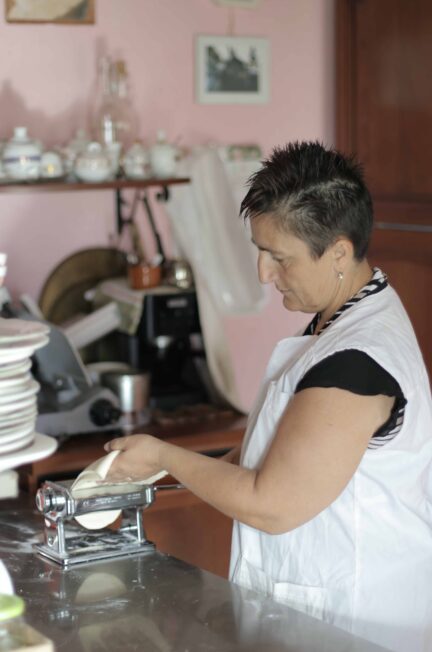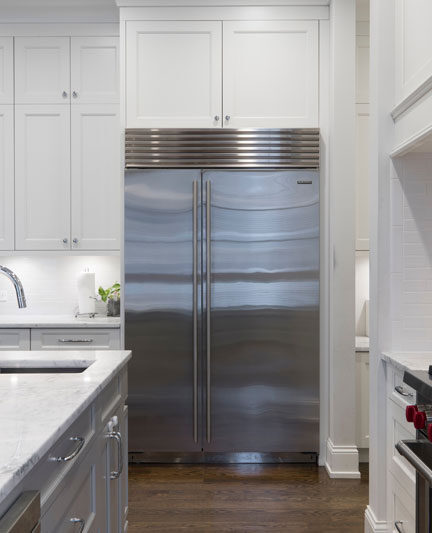Have you ever wondered what to do with your old kitchen appliances when it’s time to upgrade? Simply throwing them in the trash isn’t the most environmentally friendly option, and some appliances may even contain hazardous materials. But fear not, because I’m here to guide you on how to properly dispose of your kitchen appliances responsibly and sustainably.
With the constant advancement of technology, new kitchen appliances are released every year, leading to an increase in the number of old appliances that need to be disposed of.
Whether it’s a refrigerator, dishwasher, or microwave, there are specific steps you can take to ensure that your old appliances are disposed of in an eco-friendly manner, while also considering any local regulations or recycling programs in your area.
How To Dispose Of Kitchen Appliances?
In this blog, we will provide you with detailed step-by-step guidance on how to dispose of your kitchen appliances responsibly, including options for recycling, donating, and even repurposing them for other uses. By following these steps, you can not only declutter your kitchen but also contribute to a more sustainable future.
Assess Application Condition and Usability
Assessing the state and usefulness of a kitchen appliance helps us determine whether or not our equipment is still in excellent working order or whether they are easily repairable, perhaps saving them from premature breakages.
Inspect each appliance thoroughly, looking for signs of wear, functioning, and any repair requirements. Perhaps the toaster merely requires a new cable, while the coffee machine could benefit from a thorough cleaning. We may discover untapped opportunities for prolonged usage by thoroughly evaluating our appliances.
Consider the advantages of donating or selling appliances that are still in good working order. Not only does this offer our electronics a second life, but it also minimizes waste and encourages sustainability. Selling appliances in excellent shape may also put some money in our pockets while donating them to charity can make someone else’s kitchen journey more enjoyable.
Donate Or Sell Usable Appliances
When it comes time to get rid of our still-usable kitchen appliances, giving or selling them is an excellent means to extend their lives while also helping others. Many local donation centres, charities, and thrift stores are always looking for usable kitchen equipment to help their causes.
Begin by contacting well-known organizations such as Goodwill, The Salvation Army, or Habitat for Humanity’s ReStore, which frequently take gently used appliances. There may also be smaller, local organizations or community centres that would encourage your contributions.
Online sites such as Craigslist, Facebook Marketplace, and eBay are fantastic options for consumers wishing to sell or give away their appliances. These networks link sellers with potential buyers or those in need, making it simple to find a new home for your cherished kitchen companions.
Furthermore, many communities have social media groups or neighbourhood forums where people may provide useable equipment for free or at a low cost. Joining such networks may put you in touch with people who are looking for these items, making the process of passing them on both simple and gratifying.
Recycle Non-Functional Appliances
Recycling broken or outdated kitchen equipment is critical for both environmental preservation and responsible waste management. When appliances have reached the end of their useful life, throwing them in landfills can have negative implications, such as toxic compounds seeping into the soil and rivers, contributing to pollution and resource depletion.
Recycling, on the other hand, provides a long-term answer. Recycling appliances allows precious metals and materials to be recovered and utilized in the production of new goods, lowering the need for raw materials and energy usage.
Individuals may seek out local recycling centres or engage in appliance recycling programs to safely dispose of outdated kitchen appliances. Many towns and municipalities have designated drop-off places or events where old household appliances may be recycled. Furthermore, when acquiring new equipment, certain household electrical appliance stores or manufacturers provide recycling programs, making the procedure more convenient and environmentally responsible.
We play an important part in environmental protection and fostering a circular economy that conserves resources for future generations by choosing appliance recycling. Let’s take this cautious step towards a greener, more sustainable kitchen.

Manufacturer or Retailer Recycling Programs
Recycling programs offered by manufacturers and retailers are critical in encouraging sustainable practices and responsible waste management in appliance manufacturing firms. These programs let consumers return old appliances when purchasing new ones, ensuring that these goods are properly recycled rather than ending up in landfills.
These recycling programs have dual advantages. primarily, they encourage consumers to participate in ecologically responsible practices by providing an easy and accessible alternative for them to responsibly dispose of their old equipment. This decreases the possibility of the equipment being disposed of incorrectly and adds to the overall reduction of electronic waste.
Second, these programs make valuable materials from outdated equipment more accessible for recovery and recycling. Manufacturers can reuse metals, polymers, and other components in the manufacturing of new appliances by recovering these resources. This considerably decreases raw material consumption and conserves natural resources, making the production process more sustainable and environmentally friendly.
Schedule Appliance Pickup
Homeowners who want to properly dispose of their old kitchen equipment may check into appliance collection services provided by municipal or private agencies. For major goods such as appliances, many cities, and municipalities offer specific pickup days or curbside pickups.
You can get in touch with an appliance pickup service by contacting their local waste management agency or visiting the official website for pickup scheduling and procedures. Some places may demand early warning or the use of special disposal tags, thus residents need to become informed about the unique processes in their area.
There are private businesses that specialize in appliance removal and disposal. These services are easily accessible by phone or online appointment booking. However, it is essential to enquire about any connected expenses, since some firms may charge a minimal fee for appliance collection and disposal.
Contact Scrap Metal Recyclers
Consider contacting local scrap metal recyclers and finding out more about eco-friendly choices for disposing of outdated kitchen equipment. Because these factories specialize in recovering valuable metals from outdated equipment, they are a suitable destination for these goods.
When contacting scrap metal recyclers, inquire about their appliance acceptance policy. Refrigerators, ovens, and microwaves are commonly accepted by recyclers because they contain valuable metals such as steel, aluminium, and copper. Recycling these metals reduces the demand for new raw resources, supporting sustainable practices.
The potential value of metals in old appliances is significant. Steel, commonly found in various kitchen appliances, is highly recyclable and can be used to manufacture new products. Aluminum, another prevalent metal, is lightweight and energy-efficient to recycle, reducing greenhouse gas emissions. Additionally, copper, present in electrical components, is a valuable resource that can be reprocessed for various applications.
Properly Dispose of Hazardous Appliances
It is crucial to properly dispose of dangerous equipment to safeguard both the environment and human health. Refrigerators and air conditioners frequently contain hazardous compounds, such as coolants (such as CFCs or HFCs) and electrical components, which can be dangerous to the environment if discharged into the environment.
When these hazardous items are not properly disposed of, the chemicals they contain can leach into the land and water, endangering ecosystems and potentially poisoning drinking water supplies. Furthermore, incorrect handling of electronic components can result in the discharge of harmful compounds, adding to environmental contamination.
It is crucial to seek out specialized recycling centres or facilities that handle hazardous trash to ensure the safe disposal of dangerous items. These facilities have the knowledge and equipment to correctly remove and manage hazardous pollutants, ensuring that they are disposed of or repurposed in an ecologically acceptable manner.
Contacting local waste management authorities or environmental agencies can give information on certified recycling centres that handle hazardous trash when disposing of equipment with coolants or electrical components. We can safeguard the environment and contribute to a better and cleaner world for future generations by properly disposing of hazardous appliances.
Conclusion
Properly disposing of hazardous appliances is crucial to protect both the environment and human health. Appliances like refrigerators and air conditioners often contain hazardous materials, such as coolants (like CFCs or HFCs) and electronic components, which can be harmful if released into the environment.
When these hazardous appliances are not disposed of responsibly, the chemicals they contain can leak into the soil and water, posing a threat to ecosystems and potentially contaminating drinking water sources. Moreover, improper handling of electronic components can release toxic substances, further contributing to environmental pollution.
It is crucial to seek out specialized recycling centres or facilities that handle hazardous trash to ensure the safe disposal of dangerous items. These facilities have the knowledge and equipment to correctly remove and manage hazardous pollutants, ensuring that they are disposed of or repurposed in an ecologically acceptable manner.
Contacting local waste management authorities or environmental agencies can give information on certified recycling centres that handle hazardous trash when disposing of equipment with coolants or electrical components. We can safeguard the environment and contribute to a better and cleaner world for future generations by properly disposing of hazardous appliances.



